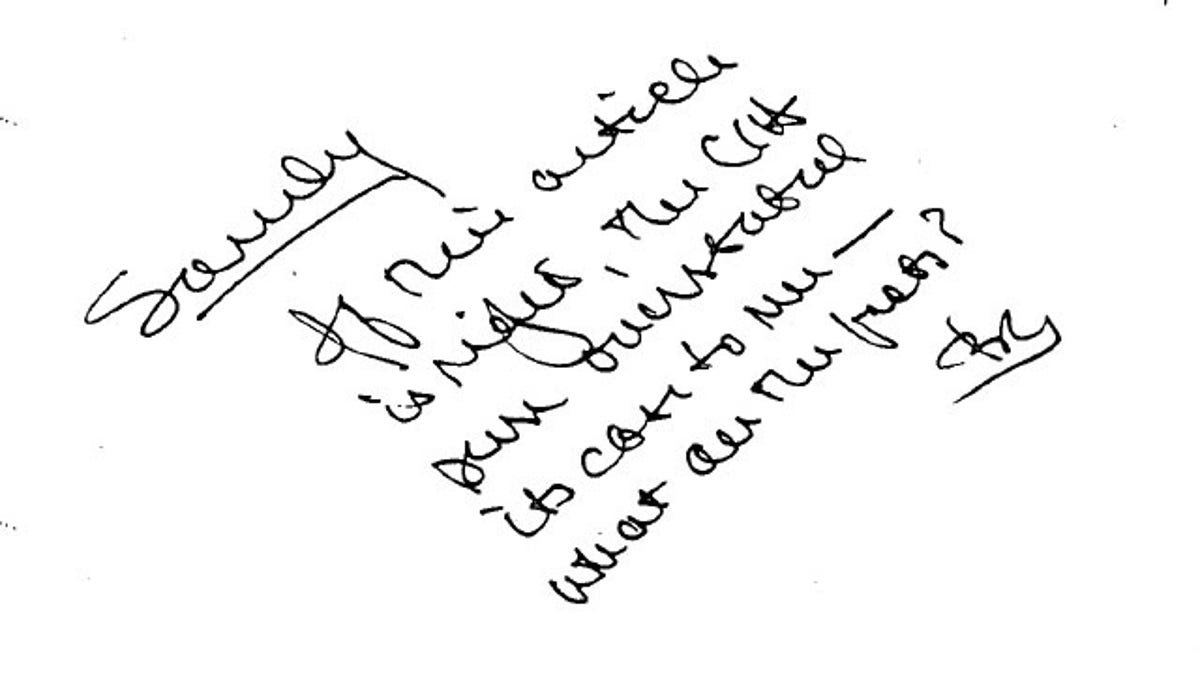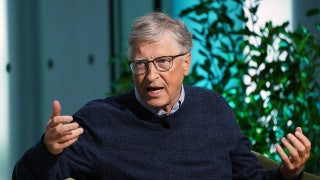
“Sandy, if this article is right, the CIA sure overstated its case to me — What are the facts?” reads a note from President Bill Clinton to then Security Adviser Sandy Berger.
When a New York Times article cast doubt on the accusation Usama bin Laden had a hand in the 1998 bombings of African embassies, President Clinton questioned his own CIA, according to a note he scrawled to his national security adviser.
The memo, part of a 1,000-page release of documents Friday afternoon by the National Archives, was written after the president apparently read an article in the self-professed "paper of record" casting doubt on the U.S. Justice Department's case that the Al Qaeda mastermind was involved in the Aug. 7, 1998 bombings of U.S. embassies in Kenya and Tanzania. Some 224 people were killed in the twin attacks, including 12 Americans.
Two months later, a federal grand jury in New York indicted bin Laden and 20 others for participating in a terrorist plot to kill Americans. But the Times article, entitled “U.S. Hard Put to Find Proof bin Laden Directed Attacks,” and written the following April, raised doubts about bin Laden's involvement, at least with Clinton.
[pullquote]
“Sandy, if this article is right, the CIA sure overstated its case to me — What are the facts?” Clinton wrote in pen.
The Times article came just two-and-a-half years before Al Qaeda mounted the 9/11 attacks. But even though the Saudi terror boss would become Public Enemy No.1 until a U.S. Navy SEAL team killed him in a raid on his compound in Abbottabad, Pakistan on May 2, 2011, the Times suggested there was little proof he ordered the truck bombings in Africa.
“Capturing Mr. bin Laden alive could deepen the complications,” read a line from the Times article. “American officials say that so far, firsthand evidence that could be used in court to prove that he commanded the bombings has proven difficult to obtain. According to the public record, none of the informants involved in the case have direct knowledge of Mr. bin Laden's involvement.”
The article also alleged that federal prosecutors had built their case around messages bin Laden recorded and sent out from an Afghanistan cave, inciting extremists to carry out the attacks. It noted that a joint investigation by the newspaper and PBS’ Frontline found bin Laden was less of a ringleader and more of an inspiration for terrorists.
Clinton seemed frustrated by the newspaper report, and though it is not clear what the CIA had told Clinton, it seems a good bet he got the answers he wanted.
“I need a serious memo in response by early next week,” the president wrote in a second memo included on the publicly released document.












































